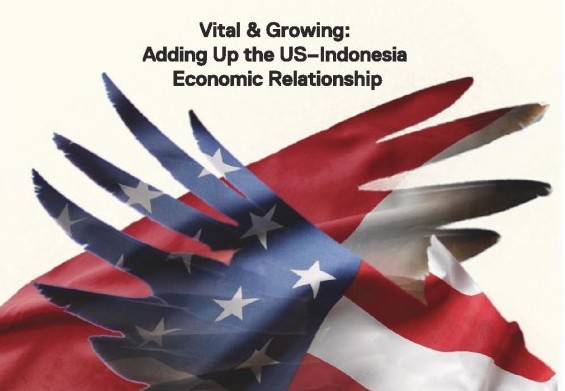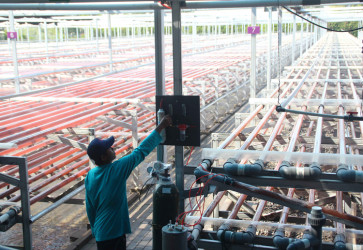Commodity boom causes premature deindustrialization
Change text size
Gift Premium Articles
to Anyone
 American Chamber of Commerce (AmCham) Indonesia is to hold the fourth Annual Investment Summit in Jakarta on Sept 15. (Courtesy of https://http://www.amcham.or.id//File)
American Chamber of Commerce (AmCham) Indonesia is to hold the fourth Annual Investment Summit in Jakarta on Sept 15. (Courtesy of https://http://www.amcham.or.id//File)
T
he commodity boom has caused premature deindustrialization in Indonesia, according to the US Chamber of Commerce (AmCham) Indonesia in a recent report about US-Indonesian economic relations.
Based on World Bank data, the contribution of the Indonesian manufacturing sector to gross domestic product (GDP) had decreased since 2002 when the export of commodities overtook that contribution. Meanwhile, in the same period, Malaysia and Vietnam increased their share in global manufacturing.
Three factors that held back Indonesian manufacturing were a decrease in labor productivity despite low wages, inefficient logistics costs that stood at 24 percent of GDP compared to that in Thailand, where it is only 16 percent, and complex regulatory procedures.
Despite the grim results of de-industrialization in the past, US companies in Indonesia showed optimism over Indonesia’s economy. In Amcham’s survey report, 87 percent of the respondents said improvements have been made during President Joko "Jokowi" Widodo’s administration.
All US companies responded that the economic packages launched so far have made some impact on the improvement of business processes.
“We have produced four reports so far and this year’s report is to present a broader picture of economic cooperation between the two countries,” said AmCham Indonesia president director Brian Arnold at the US-Indonesia Investment Initiative 2016 at the Mandarin Oriental Hotel in Jakarta on Thursday. (ags)









